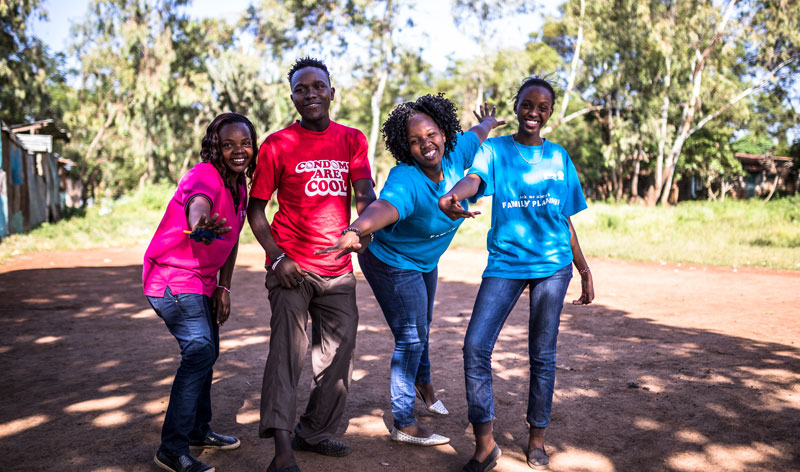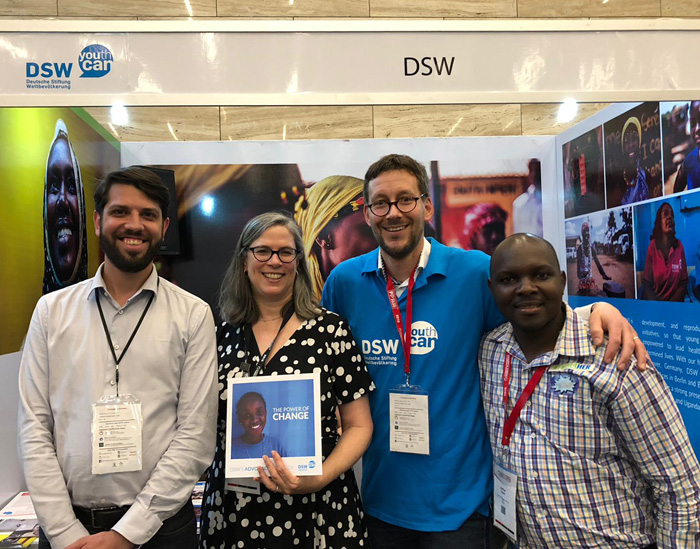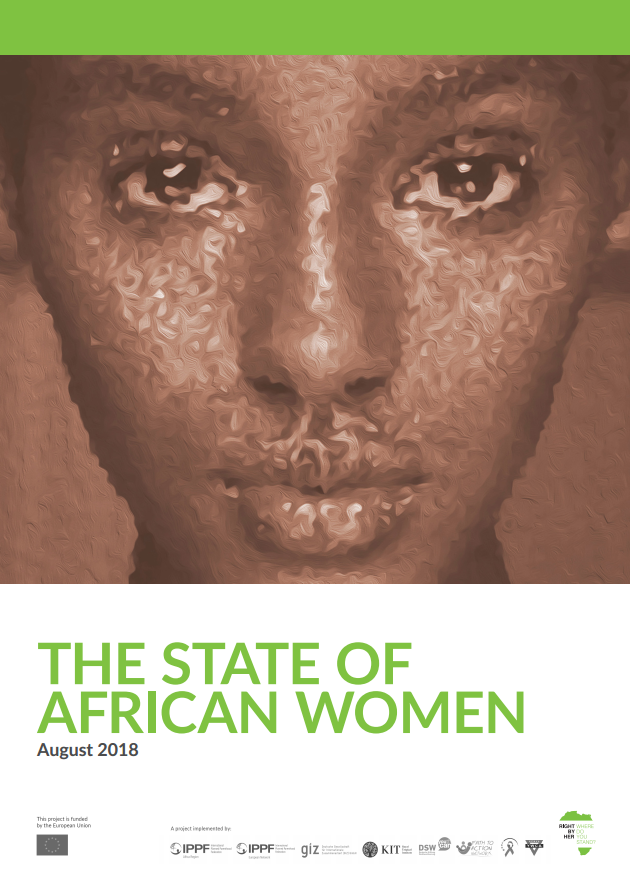
Voluntary family planning is a human right. It means that every person has access to methods of contraception and can decide for themselves whether, with whom and when they want to start a family. However, this right is often not granted to women and girls in particular. Andreas Hübers, head of the DSW office in Berlin, writes about where he sees great potential for positive development in the new year – and where we will become involved above all.
Young people are the key
I had one of my crucial experiences in 2018 at the International Conference on Family Planning in Kigali, the capital of Ruanda. While there, I got talking to Moses, a young man from a rural area in Uganda. He told me how his life had changed due to our Youth Truck, the sex education vehicle of the DSW. It was a critical time of his life because he had many questions about sexuality and health that he could not ask anyone about. However, he was able to talk openly to the Youth Truck team about all his questions and was finally getting all the answers he needed.
This is a success story in itself, but it doesn’t end there: Moses wanted to pass on his knowledge so that all young people have the same opportunity. He joined forces with others in order to earn money with handicraft. Eventually, the group had saved enough to buy an old off-road vehicle. This Youth Truck II now travels the east of Uganda. “I recognise myself in many of the young people,” Moses said at our meeting in Kigali. “I had the very same questions back then. Now I have the answers.”
Moses’s story and his commitment for his own Youth Truck is not only a great success story of our work. It also shows how much can happen when young people are given a chance – and how important contact persons are that provide them with information on methods of contraception and on sexual health. Young people themselves are the best advocates for their needs – be it when talking to others of the same age or to politicians. All they need is some support. Therefore, we need to ask:
“How can we help Moses make his dream come true to provide all the young people in the east of Uganda with information on sexual education, on health, and on becoming an adult?”
In 2019, we will rely on partnerships
In June, the conference Women Deliver is going to take place in Canada. It will be the largest conference on the topics of gender justice and the rights and health of girls and women in the 21st century. The initiative FP2020 is also going to gain more attention in public discussion. It is our aim that another 120 million women will be using modern methods of contraception by 2020. Since 2012, their number was raised by 46 million new users. – A great success, but not even half of what we had aimed for.

The DSW is going to make its own active contribution in order to accelerate the existing progress. Together, we can achieve more!
In 2019, we will create more political space for young people
Politicians of all ages like to say: “The youth is our future – and they do it often. More important though: young people are our present. Be it when shaping local health services in East Africa or when planning new health programmes: we need to involve young people. The mere fact that the under 15-year olds make up 43% of the population in the African countries south of the Sahara shows that there is ample need. Young people need to be able to articulate their opinions and needs. And politicians need to listen.
Supported by the DSW, the “Youth Champions” have achieved a lot in the past years. In almost all of the communities that they were active in, they were able to enforce more youth-friendly health offers. In 2019, we want to make more of an effort to provide a stage and networking options for these young people – on a national and international level.
In 2019, we want to close the funding gap further
Although many African governments and some givers have increased their funds for family planning in the last years, an investment gap remains. For me, 2019 is going to be a successful year only if this gap can be closed further. The DSW fights for this on many levels:
Europe’s influence on family planning
Right now, the support for sexual and reproductive health and rights is swaying in two important OECD countries: in the US because of the continued Global Gag Rule, and in great Britain because of the Brexit. Due to this, the EU, where a new parliament is going to be elected in May 2019, has become even more important. Here, we are working emphatically on strengthening the European voice for sexual and reproductive health and rights. We do so because development policy investments by the EU are especially needed right now.
Germany’s commitment is central
An internationally important decision is to be made in Germany in 2019. This year, the initiative for family planning and maternal health is going to end. So far, it has been sponsored with 100 million euros by the Federal Government. The initiative had three aims within the development assistance:
- increase the knowledge about and acceptance of modern methods of family planning
- improve access to modern methods and services of family planning
- increase the number of births monitored by medical professionals
Not only do we hope this initiative is going to continue; we are in favour of increasing the funds to 150 million euros a year, especially because of this funding shortfall. We are pleased about the strong parliamentary interest and the growing support for this aim.
Crucial moment for East Africa’s commitment
Over the last years, many districts in East Africa have developed and implemented investment and funding plans. Typically, these plans are meant for five years. This means that the year ahead is a good time to take stock, to insist on sticking to those plans, and to stand by governments in an advisory manner for their next steps.
All these things together will support Moses and his generation when it comes to realising their aims; at the same time, they are given a voice on a political level.
I am sure: if we follow the example of Moses’s commitment, we will be able to reach our aim of allowing everyone access to methods of contraception and to high-quality health services.
Andreas Hübers manages the DSW’s international political work from our office in Berlin.
Have you also heard about our Right by Her Campaign? We are working hard to make women’s rights a reality across Africa, focusing on four key areas: SRHR, HIV & AIDS, harmful practices, and gender-based violence. Together with our partners, and our donor the EU, we research the status of inequality, advocate for change, raise awareness, and build the capacity of civil society. To learn more about this project visit: www.rightbyher.org

